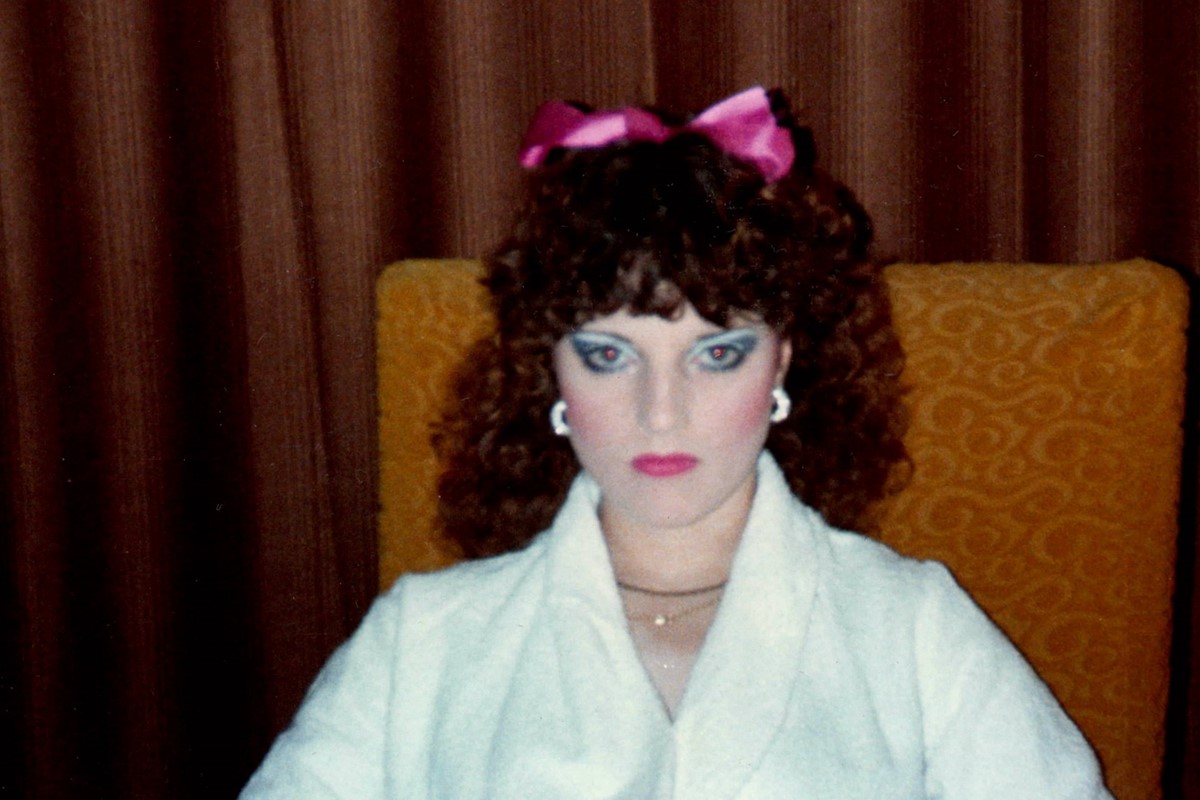When photographer and artist Victoria Gill returned from London to her hometown of Leeds for Christmas last year, she found boxes of her mum’s old photographs, that had been stored in her granddad’s attic for decades, now residing temporarily under her bed. Inside was a treasure trove of pictures of her mum, Melanie, and friends, mainly taken around 1984, the year she turned 18.
The photographs are mementoes from a pre-smartphone, pre-social media age. Almost exclusively, they’re classic pictures of friends spending time together in pubs, clubs, front rooms and bedrooms. Each image has been taken for its own sake, with no agenda other than to distil a moment in time, and for no one’s benefit other than Melanie’s immediate audience of friends. “There was almost an accidental quality to [the pictures]; this is just truly what was happening on weekends or after work,” Gill tells Dazed. “It is also important to stress that the motive behind the pics was for personal use, and often taken whilst drunk.”
As a body of images, they present a tender portrait of working-class youth culture in the north of England during the mid-late 1980s. Gill immediately knew that she wanted to do something with the images, to honour them in some way. Now, they have been brought together in a photo book, Melanie & the Miners’ Strike (published by IDEA). “Before I even thought about it being a book, I started juxtaposing the images with the idea of the miners’ strikes,” she says. Despite this era being synonymous with visions of the deprivation and discord of Thatcher’s Britain, Melanie’s boxes of photographs reveal an alternative narrative to these dark days of deindustrialisation. Gill says, “I saw it as my job to get them seen.”
Already actively exploring ideas of cultural capital within her work, Melanie’s images fed into Gill’s interest in exploring the north-south binary. Growing up in the North, there’s the persistent notion that London is the centre, flinging out culture with a centrifugal force: the further away you are, the less you get. “I moved to the South from Leeds when I was 18 and I’ve never lost my accent. I have always been proud to be from there,” she says. “I think when I first moved to the south, I realised northerners were in two camps: you either got rid of your accent or at least diluted it down, or you really played into the stereotypes. I didn’t want to do either.”
Rather, Gill believes in disrupting clichès, and visual storytelling is a huge part of broadening our perspective. “It’s essential to see different representations of the North – or of anywhere – the more nuances or perspectives you can get in a place, the better. And hopefully, this book is a small part of that. Seeing cities – and anything – from as many angles as you possibly can is surely better. Things happen everywhere and maybe it’s our job to look for them.”
Squeezed in between long work weeks were Sunday dinners and Saturday nights out. I grew up with the notion that your women friends got you through all the decades of your life – Victoria Gill
While it’s an image-led book, during the process of putting the book together, Gill assembled her mum and her friends to look over the pictures and recorded their responses to the photos. Some of those comments have made it into Melanie & The Miners’ Strike as annotations which add extra colour and context. “The captions are snippets of conversations. I was pretty certain I didn’t want much text in the book. Maybe then the reader can come to it how I came to the pictures – with small handwritten notes on the back of a few pictures, like ‘Annette’s ear, morning after – Jan 1985’. Or ‘Michael met me at 7, Melanie X’. And ‘18th Birthday at Bali Hai’.”
The theme of friendship, especially the decades-long friendships between women, is an abiding one throughout the book. “My mum and her friends were the backdrop of my childhood. There are a lot of sincere images of true friendships, told by tight clasps of holding hands, getting ready together, and mornings-after. Always more pictures of the boyfriend’s sister than of the boyfriend,” she tells us. “I remember coming home or coming downstairs on weekend mornings to a room full of laughter and at least three of my mum’s friends sitting and chatting. Squeezed in between long work weeks were Sunday dinners and Saturday nights out. I grew up with the notion that your women friends got you through all the decades of your life. It was nice to find images from years before I was born and see that not much has changed. My mum has always loved her friends and a good night out.”
Visit the gallery above for a closer look.
Melanie & The Miners’ Strike is published by IDEA and is available here now.
